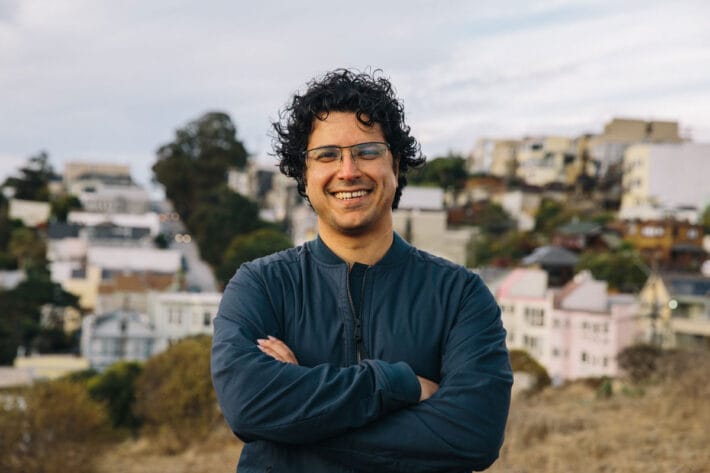
Elham Azizi receives the Vilcek Prize for Creative Promise in Biomedical Science for her research in cancer science. Her work engages machine learning, statistics, genomics, and bioengineering to derive principles of cancer initiation, progression, and response.
Azizi has long been fascinated by the complexity of biological systems; while studying electrical engineering as an undergraduate, she realized the opportunity to combine the two fields, an interdisciplinary approach that is at the core of her work. “I became interested in using engineering approaches to study genetic codes within cells. With the rise of genomics and machine learning, I aimed to leverage these technologies to understand human health and disease.”

Recently, Azizi’s research has made significant strides in learning how cancer and immune cells interact within complex patient samples. Put simply, it’s like looking at a complex puzzle in which each individual piece is a different type of cell. Azizi’s work is all about learning how the pieces fit together. “We want to understand why some treatments work for some patients and not for others,” Azizi says. The ultimate goal is to use this knowledge to help those suffering with diseases.
This innovative approach has the potential to change the way scientists and physicians approach cancer treatment—including the creation of targeted and individualized treatment plans that will improve treatment outcomes. For Azizi, that’s a huge motivating factor. “The potential to directly impact human health and improve patients’ lives by transforming complex data into actionable insights is what drives our work,” she says.

It hasn’t always been easy for Azizi. Navigating the fields of engineering and machine learning as an immigrant woman has led to some unique challenges. It’s because of her own experiences that she’s focused on creating more inclusive lab environments that value diverse voices.
In the end, Azizi just wants to help others. Whether through her research, working to revolutionize cancer treatments, or by mentoring the next generation of scientists, Azizi exemplifies the power of perseverance, innovation, and inclusivity in the scientific community.
Awards & Accomplishments
- Early-Career Innovator in Science Award in Cancer Immunology, Takeda and the New York Academy of Sciences (2024)
- Allen Distinguished Investigator Award, Allen Institute (2023)
- NHGRI Award for Supporting Talented Early Career Researchers in Genomics (2023)
- CZI Science Diversity Leadership Award, Chan Zuckerberg Initiative and the National Academies of Sciences, Engineering, and Medicine (2022)
- NSF CAREER Award (2022)
- Provost’s Grant for junior faculty contributing to the diversity goals of Columbia University (2022)
- Columbia Research Initiatives in Science & Engineering (RISE) Award (2021)
- Irving Endowed Assistant Professorship in Cancer Data Research, Columbia University (2020)
- Tri-Institutional Breakout Prize for Junior Investigators, Weill Cornell Medicine, Rockefeller University, and Memorial Sloan Kettering Cancer Center (2019)
- Next Generation in Biomedicine, Broad Institute of MIT and Harvard (2018)
- NIH NCI Pathway to Independence Award (2018)
- American Cancer Society Postdoctoral Fellowship (2017)
- IBM Best Student Paper Award, New England Statistics Symposium (NESS) (2014)
- TEDMED Frontline Scholarship (2014)
- Presidential Award for Exceptional Students, Iran (2004)
- Silver Medal, 16th National Physics Olympiad, Iran (2003)
Follow Elham Azizi
Jury Members
2025 Vilcek Prize for Creative Promise in Biomedical Science
Laurie Dempsey
Dan Littman
Luciano Marraffini
Alejandro Sánchez-Alvarado
Mikhail Shapiro
Joanna Wysocka
Xiaowei Zhuang
Related Prize Recipients
Hani Goodarzi

Houra Merrikh

Pardis Sabeti

You may also be interested in
Elham Azizi: Pioneering Research and Advocacy in Computational Biology

Vilcek Foundation Awards $250,000 to Immigrants in Biomedical Science

Hani Goodarzi: A multidisciplinary approach to cancer biology
